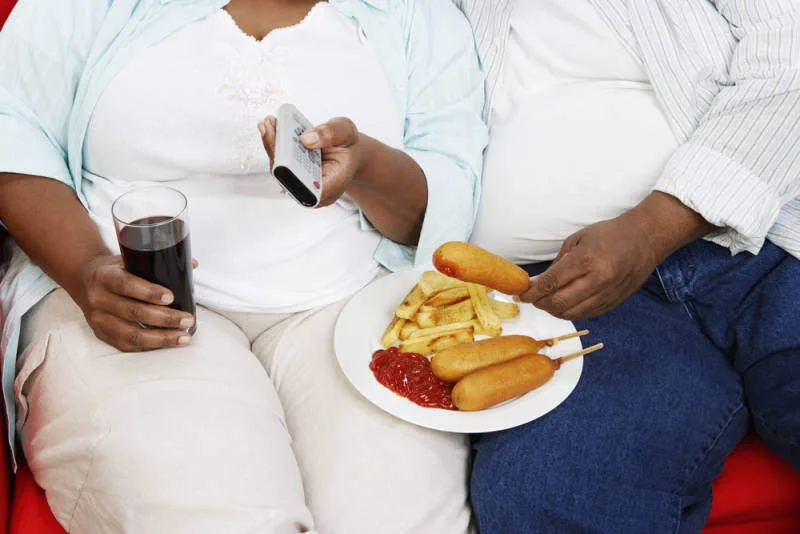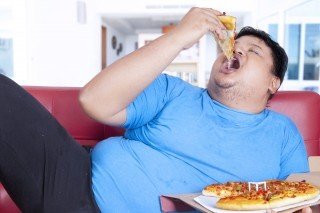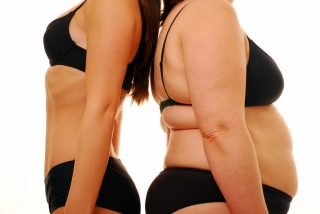We all understand that lockdown measurements were put in place to contain the spread of the COVID-19 virus. While we understand the intention behind the plan, it’s unfortunate that the powers that be didn’t better prepare themselves for the unintended consequences. The lockdown regulation definitely heightened underlying problems that the South African population was already facing. In fact, it appears that the lockdown provided the perfect opportunity for the obesity crisis to grow.
South Africa’s Obesity Crisis – A ‘Bigger’ Pandemic
Pharma Dynamics is the largest provider of cardiovascular medicine in South Africa. The company conducted a national survey in the last two months among almost 2 000 South African adults, and they found that:
- 45% of respondents said lockdown regulations impacted their eating and exercise habits for the worse.
- 44% picked up between 2-5 kg; 15% are 6-10 kg heavier and 4% gained an extra 10 kg or more.
- 58% of family members (spouse/children) also packed on a few pounds.
- Increased weight gain in 15% of pets was also reported, which has equally real health consequences.
- 34% said their diet consists mainly of takeout and ready-made meals.
- 30% said they eat what they can afford since their income has been impacted.
- 42% are exercising less than before the pandemic.
- 59% are currently on medication for comorbidities such as heart disease, diabetes, or hypertension.
“Based on Pharma Dynamics’ more recent survey conducted in the first quarter of 2021, 69% (almost seven in ten) of respondents polled are considered overweight or obese.” explains Nicole Jennings, spokesperson for Pharma Dynamics, “Men really struggled with their weight during the pandemic. Based on Pharma Dynamics’ survey, obesity rates among men climbed by 40%.”
Jennings added that due to interruptions in schooling and extra-curricular activities, children have also gained weight,
“The SA National Health and Nutrition Examination Survey (NHANES) currently reports a combined overweight and obesity prevalence of 13.5% in children between 6-14 years of age – about 10% higher than the global prevalence.”
How did this happen?
“The hard lockdown confined most South Africans to their homes, which made food more accessible and staying physically active difficult,” explains Jennings. She adds that 43% percent of survey respondents said stress and anxiety over what the future holds affected their eating habits. Another 42% said being stuck at home led to more snacking and impulsive eating, and 28% simply ate out of boredom.
It wasn’t just their eating habits that were affected. 42% of respondents admitting that they were exercising less than before the pandemic.
But didn’t we all gain weight?
Yes, this is true. We all might have put on a few extra pounds, but there’s such a thing as too much. So how do you know if you need to be worried about the extra weight you picked up during lockdown?
“Body mass index (BMI) is a measure of your weight compared to your height. To calculate your BMI, simply divide your weight in kilograms by your height in meters squared,” explains Jennings.
According to Jennings, if your BMI is:
- below 18.5 – you’re in the underweight range.
- 18.5 – 24.9 – you’re in the healthy weight range.
- between 25 and 29.9 – you’re in the overweight range
- between 30 and 39.9 – you’re in the obese range
Tackling Obesity
1. It’s Time To Take Away The Takeaway
Another factor that greatly contributed to the obesity crisis is when takeaway options became available. Now, as much as we all missed digging into a cheesy pizza during the harsher days of lockdown, too much of a cheesy thing is never a good thing.
“Most take-out meals contain hidden calories and are high in salt, sugar, and saturated fat.” explains Jennings, “Restaurants and fast food outlets use various techniques to add flavour to their food by incorporating butter, cream, sugar, or salt. Highly processed ingredients are also often used. This all adds extra calories, saturated fat, and cholesterol to meals, which leads to weight gain in the long run.”

Photo by Erik Mclean on Unsplash
At the end of the day, nothing beats a home-cooked meal, with Jennings pointing out that when you prepare homemade meals, you are more aware of the ingredients you use, therefore home cooking is generally considered healthier.
“You tend to use more natural and fresh ingredients that are minimally processed,” she explains. Jennings also references various studies that have shown that people who frequently cook dinner at home consume fewer calories. “On average, their meals contain more vegetables, fewer carbohydrates, and less fat. Becoming more reliant on food delivery services also makes us less active. We no longer have to physically shop for food in a grocery store, nor do we expend energy making food.”
Do I have to say goodbye to restaurant food?
No, not necessarily – as long as everybody does their part.
“Restaurants and fast-food outlets should incorporate healthier meal options at an affordable price,” explains Jennings. Also, as fun as eating out can be fun, nothing beats whipping up a tasty meal,
“The public can also make use of our Cooking from the Heart recipes that are heart- and diabetic-friendly.” shares Jennings, “Planning is key when eating healthily. If you know what you’re going to cook for the week ahead, you can shop for the right ingredients online and have it delivered to your door.”
2. Manage your stress eating
When we’re stressed, sometimes food is the only thing that can make us feel better – at least that’s what your emotions are trying to tell you, but that couldn’t be further from the truth.

Photo by Patrick Fore on Unsplash
“Exercise is a great stress-buster. The more you exercise and healthier you eat, the fewer cravings you’ll have” says Jennings. She also advises that you limit screen time and structure your day to encourage more physical activity, “Try doing chores as a family, taking the stairs instead of the lift, walking to the shop to buy a few groceries rather than driving all contribute to a healthier lifestyle.”
Getting enough sleep and drinking plenty of water instead of copious amounts of coffee can help to alleviate stress. Limiting social media, TV time, and news consumption, spending time with friends and family, journaling, getting outdoors, and meditating can also help to ease symptoms during these trying times.
3. Lead by example
Any parent will tell you that children don’t do as you say, they do as they see. This is why it’s important to lead a healthy lifestyle if you want them to maintain a healthy weight.
“We need to lead by example. Eat healthily, exercise, establish a good sleeping routine, etc., “ shares Jennings, “Replace unhealthy snacks with healthy options. Get them to cook with you to gain a better understanding of nutrition and by doing so develop a healthy relationship with food from a young age.”
4. Be sensitive
If you managed to maintain a healthy diet and exercise routine during the lockdown, then pat yourself on the back. However, not everyone can say the same. If you are concerned about a loved one’s weight gain, then it’s important to approach the subject properly.
“Most people who are overweight or obese have probably already tried to diet, which makes any conversation about their weight tricky.” shares Jennings. She suggests that the best way to motivate them is by supporting them in their weight-loss journey and joining in rather than nagging them about their weight.
“You want to keep their self-esteem intact, so avoid being judgemental or criticizing them in any way. Rather, broach the subject from a place of concern by explaining how much you love them and that as a couple, friends, or family you need to work together to make health a priority. Then set out by putting an achievable plan together.”
Is Obesity A Bigger Pandemic?
“Obesity significantly increases your risk of hypertension (high blood pressure) and type 2 diabetes.” explains Jennings, “Every year, 10 million people die due to hypertension complications alone – almost four times more than those who have died from COVID-19. Being obese also increases your chances of severe COVID-19 complications and hospitalization.”
If that’s the case, why isn’t the same attention given to COVID-19, being given to the obesity crisis?
“I think more attention is placed on COVID-19 since it’s new and thus researchers and governments are investing more in trying to understand the virus better and how to contain and treat it,” says Jennings, who admits that tackling obesity is complex.
“While a sugar tax has been introduced, there is a need for additional legislative changes that focus on societal factors and the food industry. Health policymakers need to take bolder and more definitive steps to curb obesity.” She goes on to say that without decisive leadership, the obesity crisis won’t be reversed.
“Solely relying on public health messages about calorie intake, diet and exercise aren’t enough. A disconnect remains between policymakers and communities that struggle with obesity, especially among those living in low-socioeconomic areas, where unemployment and poverty levels are rife. Political advocacy and action to disrupt entrenched cycles that maintain poverty and prevent access to healthy choices are what is needed.”








![women [longevity live]](https://longevitylive.com/wp-content/uploads/2020/01/photo-of-women-walking-down-the-street-1116984-100x100.jpg)









